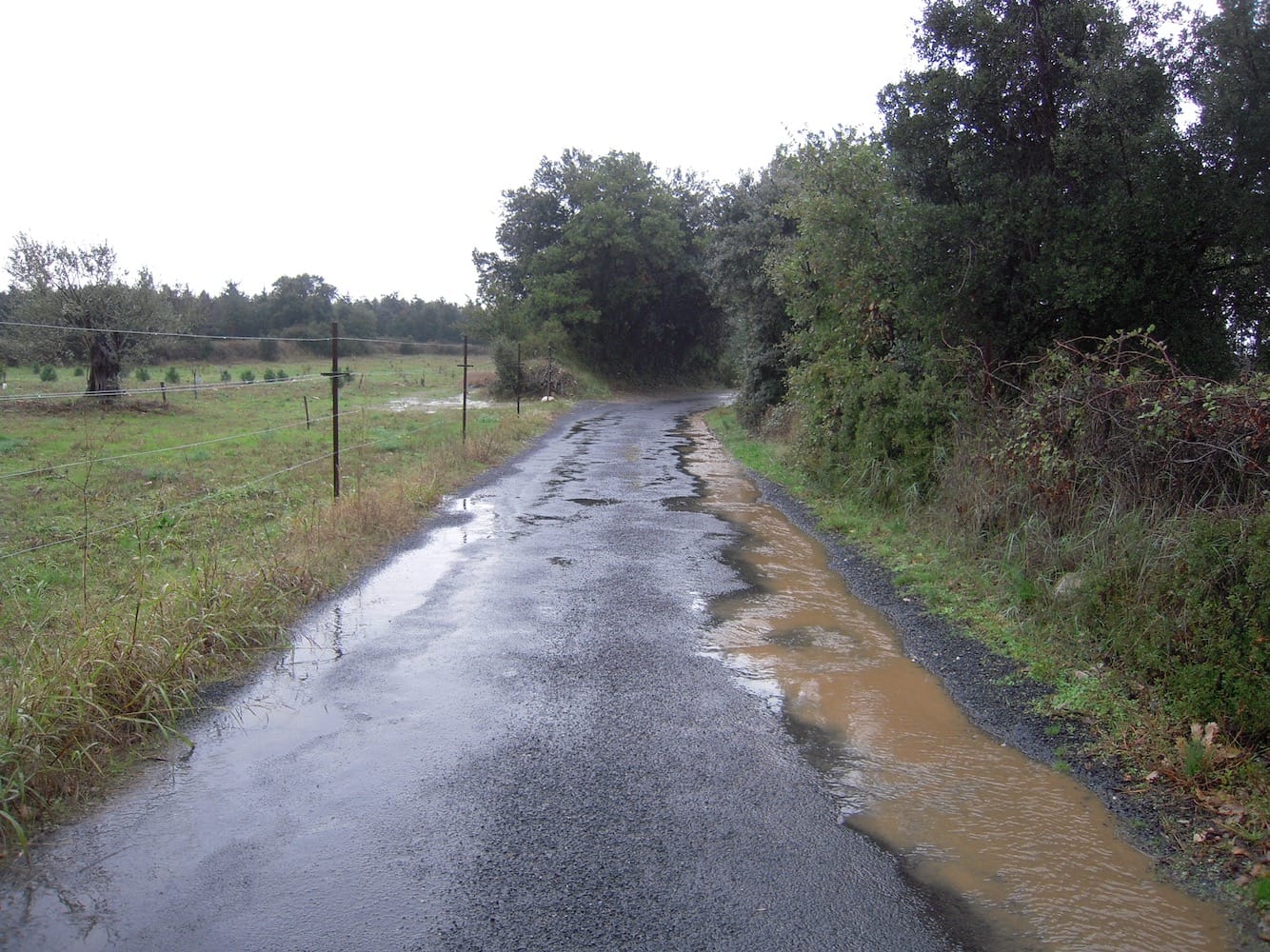Paul Verlaine was born in 1844 and became one of the most popular of French poets. Whilst he could write poems to make the reader blush, he could also make them simple and inexpressibly sad.
He picked up on a line of Rimbaud (ll pleut doucement sur la ville) and built this poem on it, no. 3 in the album Romances sans paroles, whose main theme is love – whether shared or not – and the heartbreak it brings..:
The poem inspired several songs by Debussy. (No. 2 in the cycle Ariettes oubliées.)
Note the word play on “pleure” (weep) and “pleut” (rain) which strengthens the parallels in this rather sombre poem, comparing the rain with the poet’s weeping heart

| Il pleure dans mon cœur | It weeps in my heart |
| Il pleure dans mon cœur | It weeps in my heart |
| Comme il pleut sur la ville | As it rains on the town |
| Quelle est cette langueur | What is this weariness |
| Qui pénètre mon cœur ? | That pierces my heart? |
| O bruit doux de la pluie | Oh soft noise of the rain |
| Par terre et sur les toits ! | On the ground and the roofs! |
| Pour un cœur qui s’ennuie, | For a wearying heart, |
| O le chant de la pluie ! | O the sound of the rain! |
| Il pleure sans raison | It is weeping without reason |
| Dans ce cœur qui s’écœure. | In this sickened heart |
| Quoi ! nulle trahison ? | What! No treason? |
| Ce deuil est sans raison. | This grief is without cause. |
| C’est bien le pire peine | It is truly the worst grief |
| De ne savoir pourquoi | Not to know why, |
| Sans amour et sans haine | Without love and without hatred, |
| Mon cœur a tant de peine. | My heart suffers so. |
Turned into a song, you can listen to it HERE

